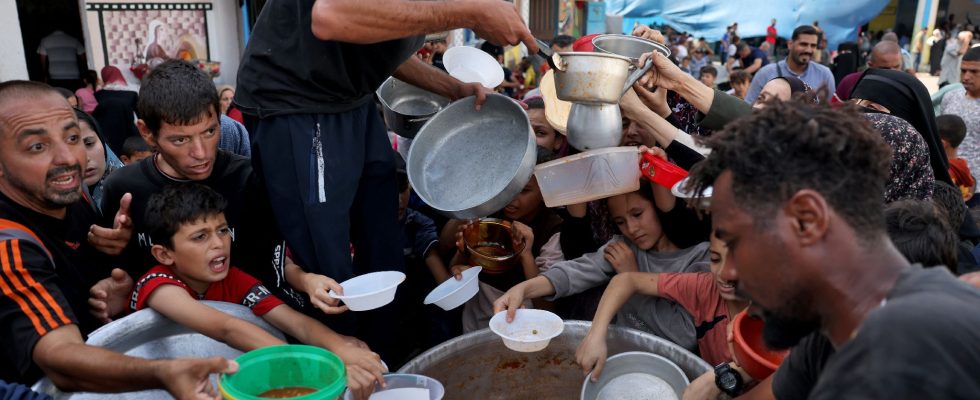The Gaza Strip concentrates a precipitate of economic and social misery. The materialist obsession of some of our left-wing commentators, who see poverty as the legitimate reason for terrorism and the consequence of Western economic oppression, largely misses the point. By making Israel solely responsible for the misery of Gazans, we prevent ourselves from considering Hamas’ responsibility for the lack of economic development.
Populated by more than 2.2 million very young inhabitants – 70% are under the age of 30 – on an area 40 kilometers long and 12 kilometers wide at the narrowest point, Gaza is one of the densest territories in the world. With a fertility rate above three children per woman of childbearing age, the population continues to increase. Unfortunately, this demographic is excessive compared to the size of the local economy, made up of businesses, some food industry and manufactured products, such as furniture. The agricultural sector is made up of small farms producing citrus fruits, olives, dates and watermelons. Public services – water, electricity – operate intermittently. Before the October 7 attacks, only 20,000 Gazans had permits to work in Israel. The unemployment rate flirts with 50% of the active population and 60% of residents live below the poverty line.
Two thirds of the population only survive thanks to humanitarian aid. It is difficult to obtain precise figures on this, due to the numerous intermediaries through which funding passes, and because the data generally aggregates money intended for Gaza and the West Bank. According to OECD figures, the main provider of funds to the territories where Palestinians live is UNRWA (United Nations Relief and Works Agency for Palestine Refugees in the Near East), an organization -even supplied mainly by the United States and the countries of the European Union (EU) which, in addition to these intermediated contributions, pay funds directly. According to the OECD, total international aid to the Palestinians is around $2 billion per year. Egypt, and especially Qatar, support Gaza in cash and in kind – fuel and electricity. This is also the case for Israel, which provides part of the territory’s public services.
The problem ? These funds are largely diverted by Hamas to manufacture weapons, buy medicine and cars, or build luxurious houses. The dilemma of development aid to Gaza from the point of view of the United States, Europe or Israel comes from the fact that it reaches very little of the Palestinian population and that it nourishes an organization that aims for destruction of the Hebrew State. This is why the EU is divided between countries which, like Hungary, favor the fight against the financing of terrorism and those which, like France, do not want to deprive the Gazans of this aid, including for not to appear to abandon them in the hands of the Islamists.
Since 2007, the Israeli blockade has imposed strict controls on imports for security reasons. The entry of steel, for example, is prohibited, to prevent Hamas from using it in the manufacture of weapons. Many commentators blame this blockade for the underdevelopment of Gaza. But the argument is insufficient. This blockade is made necessary by Hamas’ hijackings. Moreover, it is also practiced by Egypt. Israel is accused of isolating Gaza, but Egypt’s trade policy is extremely strict towards the territory controlled by Hamas. To protect its security, Egypt refuses any economic ties with Gaza, just like Israel.
There is something else. Gaza’s social misery is not monocausal. It is the result of a political and administrative configuration. Hamas taxes the few existing imports, and diverts aid for its own benefit. The ideology of this organization nip in the bud any desire for endogenous development. The oppression of women and homosexuals, Islamist education, the desire to control everything to remove the specter of “Westernization” prevent the emergence of a private sector capable of generating jobs and income. Isolation, corruption, lack of freedom, Islamism: these are the culprits of the misery of Gazans.
* Nicolas Bouzou is an economist and essayist
